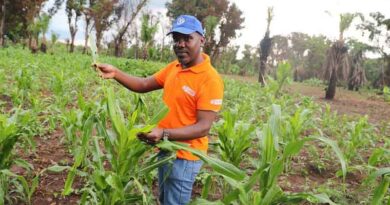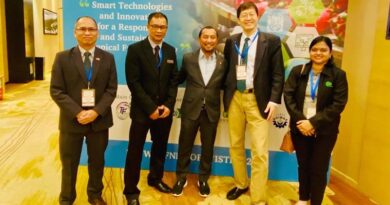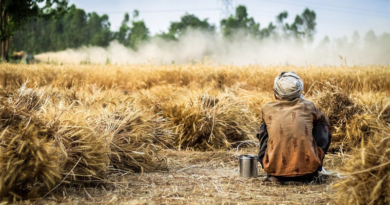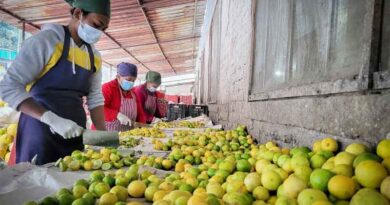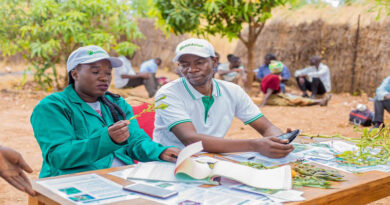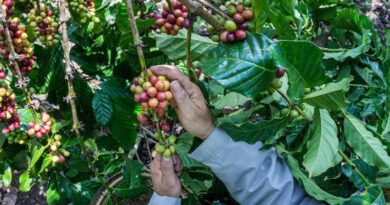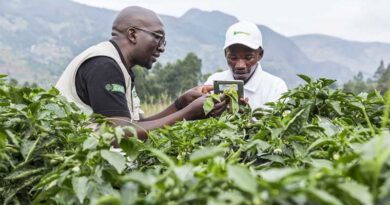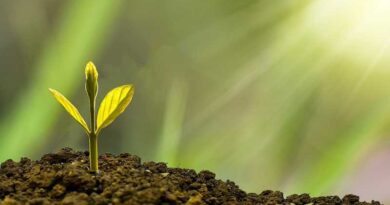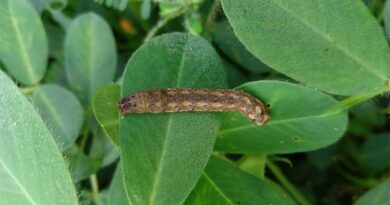CABI shares expertise at 19th Triennial Symposium of the International Society for Tropical Roots
30 November 2022, Kenya: CABI scientists have shared their expertise on the management of invasive species – which can affect the yields and livelihoods of smallholder farmers – as part of the 19th Triennial Symposium of the International Society for Tropical Roots (ISTRC).
The theme of the symposium was ‘Technological and business innovations for strengthening root and tuber crops for resilient food, nutrition and industrial systems towards sustainable economic development.’
This aligned well with CABI’s thematic areas – particularly the enhancement of food and nutrition in the wake of climate change as well as the promotion of sustainable economic development incorporating women and youth.
Dr Chapwa Kasoma, Dr Joseph Mulema and Lucy Karanja, demonstrated CABI’s work on potato surveillance in Kenya and fall armyworm and desert locusts across Africa during the event, which was held at the Safari Park Hotel in Nairobi, Kenya.
CABI’s representatives at the symposium showcased CABI’s innovative projects on technologies applied in the roots and tuber crops sector. This included invasive species work under the PlantwisePlus programme.
Several information education and communication (IEC) materials displayed at CABIs exhibition booth were widely distributed and sparked great interest from over 200 international delegates at the symposium.
Furthermore, the findings of CABI’s evidence note on Cassava Brown Streak Disease (CBSD) were also presented at the symposium – highlighting the impacts and implications for the management of CBSD in Zambia.
The evidence note, for instance, reveals that early indications of the economic damage due to CBSD in Zambia is estimated to be 55% of total annual cassava production, which corresponds to monetary losses of over US $500,000, annually.
CABI in August joined forces with the Zambian Government in a bid to help curb the spread of CBSD, which can lead to total loss of the crop – considered a staple food source for millions of residents. This included an awareness campaign comprising of farmer gatherings, plant health rallies, SMS and radio shows.
Dr Kasoma said, “The symposium presented a great platform for CABI to showcase its work in the field of invasive species, roots and tubers, and how technology and business innovations play an important role in strengthening food value chains.
“The event was also an opportunity for us to identify strategic partners for possible future collaboration in the field while also being mindful of the contribution of women and youth towards sustainable food production.”
The ISTRC states that the symposium is a “unique platform that facilitates interaction among scientists from around the world working on all tropical root and tuber crops” and that the Society was established to “foster, stimulate, and support activities that lead to the general improvement of production and utilization of tropical root and tuber crops globally.”
They add that “It is through such symposia that research outputs are shared, future patterns decided and a wide-ranging decision on the position of tropical root and tuber crops on the African continent and global agenda are made.”
Professor Lateef Oladimeji Sanni, President of the ISTRC, commended the efforts of CABI. In a welcoming address he also said, “The sub-themes of the symposium included crop improvement; agricultural biotechnology; sustainable seed systems; digital solutions; technology transfer and adoption and stewardship, among others.
“They provided an opportunity for scientists from all over Africa and around the world to network, exchange information and innovative ideas, and to initiate new collaborative studies on how roots and tuber crops can be further improved.”
Also Read: Best Agrolife launches Two Indigenously Manufactured CTPR Products
(For Latest Agriculture News & Updates, follow Krishak Jagat on Google News)


